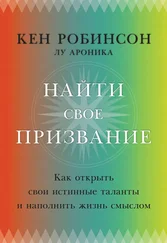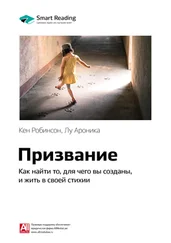Кен Робинсон - The Element
Здесь есть возможность читать онлайн «Кен Робинсон - The Element» весь текст электронной книги совершенно бесплатно (целиком полную версию без сокращений). В некоторых случаях можно слушать аудио, скачать через торрент в формате fb2 и присутствует краткое содержание. Год выпуска: 2009, ISBN: 2009, Издательство: Penguin Books Ltd, Жанр: Самосовершенствование, на английском языке. Описание произведения, (предисловие) а так же отзывы посетителей доступны на портале библиотеки ЛибКат.
- Название:The Element
- Автор:
- Издательство:Penguin Books Ltd
- Жанр:
- Год:2009
- ISBN:9780141911250
- Рейтинг книги:3 / 5. Голосов: 1
-
Избранное:Добавить в избранное
- Отзывы:
-
Ваша оценка:
- 60
- 1
- 2
- 3
- 4
- 5
The Element: краткое содержание, описание и аннотация
Предлагаем к чтению аннотацию, описание, краткое содержание или предисловие (зависит от того, что написал сам автор книги «The Element»). Если вы не нашли необходимую информацию о книге — напишите в комментариях, мы постараемся отыскать её.
The Element — читать онлайн бесплатно полную книгу (весь текст) целиком
Ниже представлен текст книги, разбитый по страницам. Система сохранения места последней прочитанной страницы, позволяет с удобством читать онлайн бесплатно книгу «The Element», без необходимости каждый раз заново искать на чём Вы остановились. Поставьте закладку, и сможете в любой момент перейти на страницу, на которой закончили чтение.
Интервал:
Закладка:
There have always been criticisms of definitions of intelligence based only on IQ, and in recent years they have been gaining in number and strength. There’s a range of alternative, sometimes competing theories that argue that intelligence takes in much more than IQ tests can ever hope to assess.
Harvard psychologist Howard Gardner has argued to wide acclaim that we have not one but multiple intelligences. They include linguistic, musical, mathematical, spatial, kinesthetic, interpersonal (relationships with others), and intra‐personal (knowledge and understanding of the self) intelligence. He argues that these types of intelligence are more or less independent of each other, and none is more important, though some might be “dominant” while others are “dormant.” He says that we all have different strengths in different intelligences and that education should treat them equally so that all children receive opportunities to develop their individual abilities.
Robert Sternberg is a professor of psychology at Tufts University and a past president of the American Psychological Association. He is a long‐term critic of traditional approaches to intelligence testing and IQ. He argues that there are three types of intelligence: analytic intelligence, the ability to solve problems using academic skills and to complete conventional IQ tests; creative intelligence, the ability to deal with novel situations and to come up with original solutions; and practical intelligence, the ability to deal with problems and challenges in everyday life.
Psychologist and best‐selling author Daniel Goleman has argued in his books that there is emotional intelligence and social intelligence, both of which are essential to getting along with ourselves and with the world round us.
Robert Cooper, author of The Other 90% , says that we shouldn’t think of intelligence as happening only in the brain in our skulls. He talks of the “heart” brain and the “gut” brain. Whenever we have a direct experience, he says, it does not go directly to the brain in our heads. The first place it goes is to the neurological networks of the intestinal tract and heart. He describes the first of these, the enteric nervous system, as a “second brain” inside the intestines, which is “independent of but also interconnected with the brain in the cranium.” He says that this is why we often experience our first reaction to events as a “gut reaction.” Whether or not we acknowledge them, he says, our gut reactions shape everything we do.
Other psychologists and intelligence testers worry about all of these sorts of ideas. They say there is no quantifiable evidence to prove their existence. That may be. But the clear fact of everyday experience is that human intelligence is diverse and multifaceted. For evidence, we need only look at the extraordinary richness and complexity of human culture and achievement. Whether we can ever capture all of this in a single theory of intelligence—with three, four, five, or even eight separate categories—is a problem for the theorists.
Meanwhile the evidence of a basic truth of human ability is everywhere: we “think” about our experiences in all the ways we have them. It’s clear too that we all have different strengths and natural aptitudes.
I mentioned that I don’t have a particular aptitude for mathematics. Actually, I don’t have any aptitude for it. Alexis Lemaire, on the other hand, does. Lemaire is a young French doctoral student specializing in artificial intelligence. In 2007, he claimed the world record for calculating in his head the thirteenth root of a random two‐hundred‐digit number. He did this in 72.4 seconds. In case, like me, you’re not sure what this means, let me explain. Alexis sat in front of a laptop computer that had generated at random a two‐hundred‐figure number and displayed it on the screen. The number was more than seventeen lines long. This is a big number.
Alexis’s task was to calculate in his head the thirteenth root of that number (that is, the number that multiplied by itself thirteen times would produce the exact two‐hundred‐digit number on the screen). He stared at the screen without speaking and then announced correctly that the answer was, 2,397,207,667,966,701. Remember that he did this in 72.4 seconds. In his head.
Lemaire performed this feat at the New York Hall of Science. He has been working on the thirteenth‐root challenge for a number of years. Previously, his best time had been a sluggish 77 seconds. Afterward, he told the press, “The first digit is very easy, the last digit is very easy, but the inside numbers are extremely difficult. I use an artificial intelligence system on my own brain instead of on a computer. I believe most people can do it, but I also have a high‐speed mind. My brain works sometimes very, very fast.… I use a process to improve my skills to behave like a computer. It’s like running a program in my head to control my brain.”
“Sometimes,” he said, “when I do multiplication my brain works so fast that I need to take medication. I think somebody without a very fast brain can also do this kind of multiplication but this may be easier for me because my brain is faster.” He practices math regularly. So that he can think faster, he exercises, doesn’t drink caffeine or alcohol, and avoids foods that are high in sugar or fat. His experience of math is so intense that he also has to take regular time off to rest his brain. Otherwise, he thinks there is a danger that too much math could be bad for his health and his heart.
I have always felt that too much math can be bad for my health and my heart as well, but for different reasons. Surprisingly, like me, he did not do particularly well in math at school, though the comparisons between us end right there. He was not top of the class in math, and mainly taught himself through books.
He did have a natural flair for numbers, though, which he discovered when he was about eleven years old and which he has refined and cultivated through constantly challenging himself and by developing sophisticated techniques to exploit it. But the foundation of all of these achievements is a unique, personal aptitude combined with a deep passion and commitment. When he is digging around in huge numbers to unearth their roots, Alexis Lemaire is clearly in his Element.
The Three Features of Human Intelligence
Human intelligence seems to have at least three main features. The first is that it is extraordinarily diverse. It is clearly not limited to the ability to do verbal and mathematical reasoning. These skills are important, but they are simply one way in which intelligence expresses itself.
Gordon Parks was a legendary photographer who captured the black American experience in a way that few others ever had. He was the first black producer and director of a major Hollywood film. He helped found Essence magazine and served as its editorial director for three years. He was a gifted poet, novelist, and memoirist. He was a talented composer who created his own form of musical notation to write his works.
And he was professionally trained at none of this.
In fact, Gordon Parks barely attended high school. Parks’s mother died when he was fifteen, and soon after, he found himself on the streets, unable to graduate. The schooling he did get was discouraging—he often mentioned that one of his teachers told her students that college would be a waste for them since they were destined to become porters and house cleaners.
Still, he used his intelligence in ways few could match. He taught himself to play the piano and this helped him make some money to get by in his late teens. A few years later, he bought a camera from a pawnshop and taught himself to take pictures. What he learned about film and writing came largely from observation, an intense level of intellectual curiosity, and an off‐the‐charts ability to feel for and see into the lives of other people.
Читать дальшеИнтервал:
Закладка:
Похожие книги на «The Element»
Представляем Вашему вниманию похожие книги на «The Element» списком для выбора. Мы отобрали схожую по названию и смыслу литературу в надежде предоставить читателям больше вариантов отыскать новые, интересные, ещё непрочитанные произведения.
Обсуждение, отзывы о книге «The Element» и просто собственные мнения читателей. Оставьте ваши комментарии, напишите, что Вы думаете о произведении, его смысле или главных героях. Укажите что конкретно понравилось, а что нет, и почему Вы так считаете.












